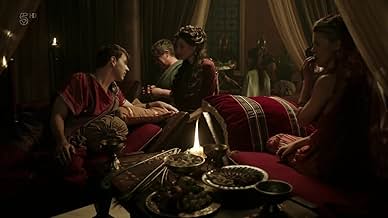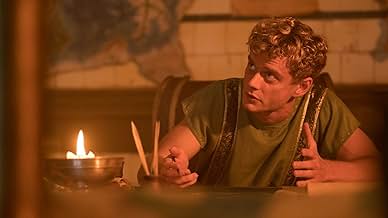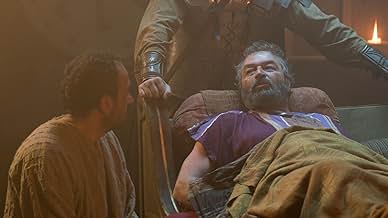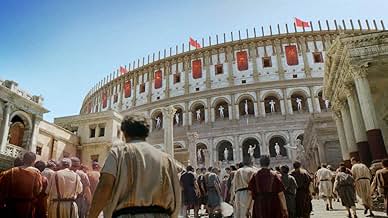Ajouter une intrigue dans votre langueHistorian Bettany Hughes selects eight pivotal days that defined the Roman Empire and its establishment as the world's first superpower.Historian Bettany Hughes selects eight pivotal days that defined the Roman Empire and its establishment as the world's first superpower.Historian Bettany Hughes selects eight pivotal days that defined the Roman Empire and its establishment as the world's first superpower.
Parcourir les épisodes
Avis à la une
I hope this series gets recognition for excellence that it deserves. This was a fascinating journey through time and history unlike any television experience that I can remember. I found myself eagerly awaiting the arrival of the dreaded Monday for the arrival of the next installment. The host was engaging I feel truly captured the essence of each tale. Also, the tales themselves were great, both riveting and interesting. I love how the actual locations and artifacts were incorporated into each episode to make immersion into to time and place complete. Bravo to Smithsonian channel and to all of those involved.
This woman describes Romans as misogynist, following the today's trend. This is false: Rome's women were, in a lot of cases, even more powerful than men.
The plot is clearly made just to catch the audience, sacrificing the truth.
The plot is clearly made just to catch the audience, sacrificing the truth.
A fairly superficial coverage of significant events in Roman history.. I don't think I learnt anything new at all, and I thought the dramatisations a bit simplistic, and quite unnecessary. I also though it a mistake to have the presenter dressed so as to emphasise her ample cleavage.
Bring back Mary Beard - she makes the most mundane of Roman things interesting and exciting.
I loved the series and learnt a lot from it and thoroughly enjoyed the series. whilst its not perfect neither am i and i would like to see the previous reviewer do better.
I found the whole series bias against Rome, but the Caesar one irritated me the most. She seems to misunderstand what the Roman Republic was: An oligarchy. The Senators weren't elected, they were pulled from the aristocracy. There was no representation of the people until the Senate was forced to give the plebs representation in the form of tribunes only because they needed the plebs help in a war. And the Senate literally lynched the first couple of tribunes who actually moved to really help the plebeians and heal some of the empires problems. So Caesar was fighting fire with fire only after many many popularii and tribunes were murdered by an aristocratic leader named Sulla. He literally marched an army in and killed every popularii he could which was the first time that was ever done. The show drastically mistakes the Republic and how they viewed common people and even their middle class. She also drastically misrepresents the Germanic and Celtic people of that time. They were brutal and frequently attacked Rome. The Cimbric War is a prime example of German civility. And the Celts invaded constantly and even managed to sack Rome once.
Meilleurs choix
Connectez-vous pour évaluer et suivre la liste de favoris afin de recevoir des recommandations personnalisées
- How many seasons does Eight Days That Made Rome have?Alimenté par Alexa
Détails
- Date de sortie
- Pays d’origine
- Site officiel
- Langue
- Aussi connu sous le nom de
- 8 Days That Made Rome
- Lieux de tournage
- Société de production
- Voir plus de crédits d'entreprise sur IMDbPro
Contribuer à cette page
Suggérer une modification ou ajouter du contenu manquant































